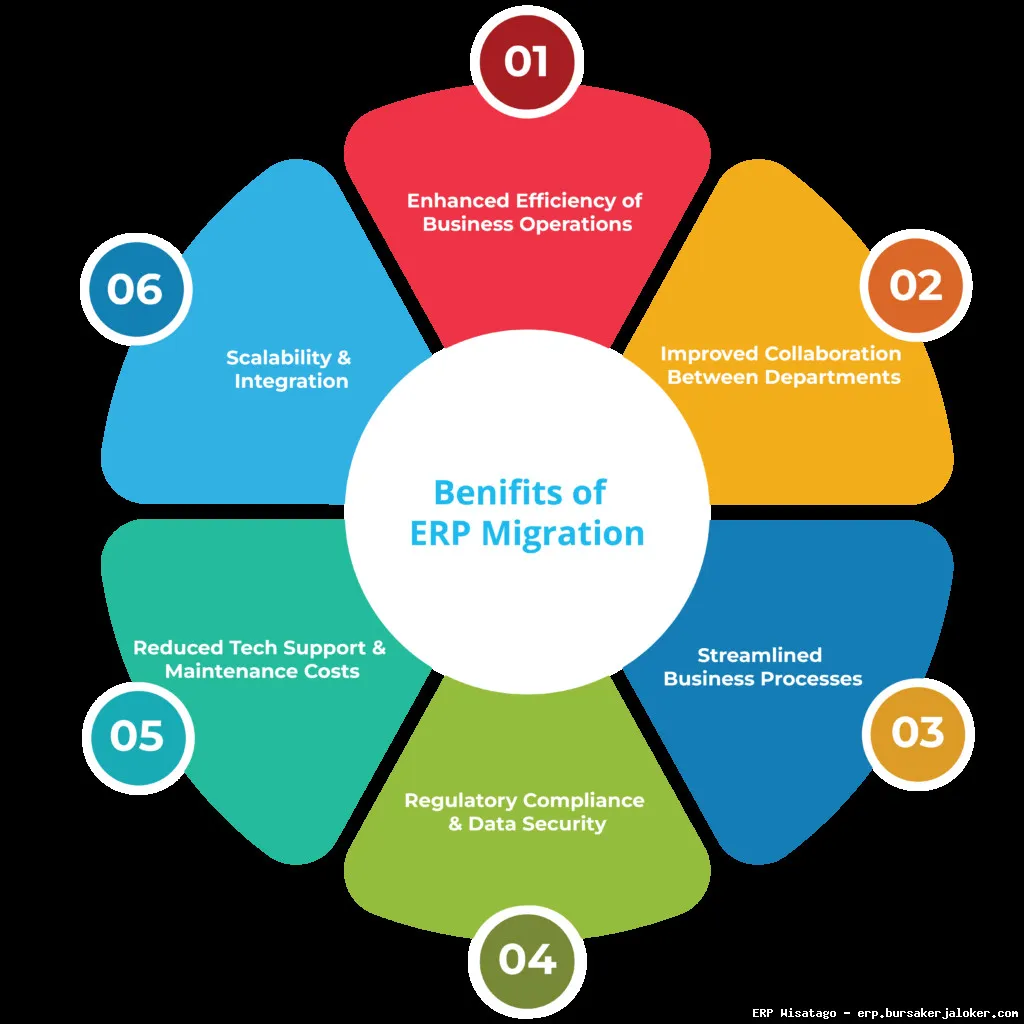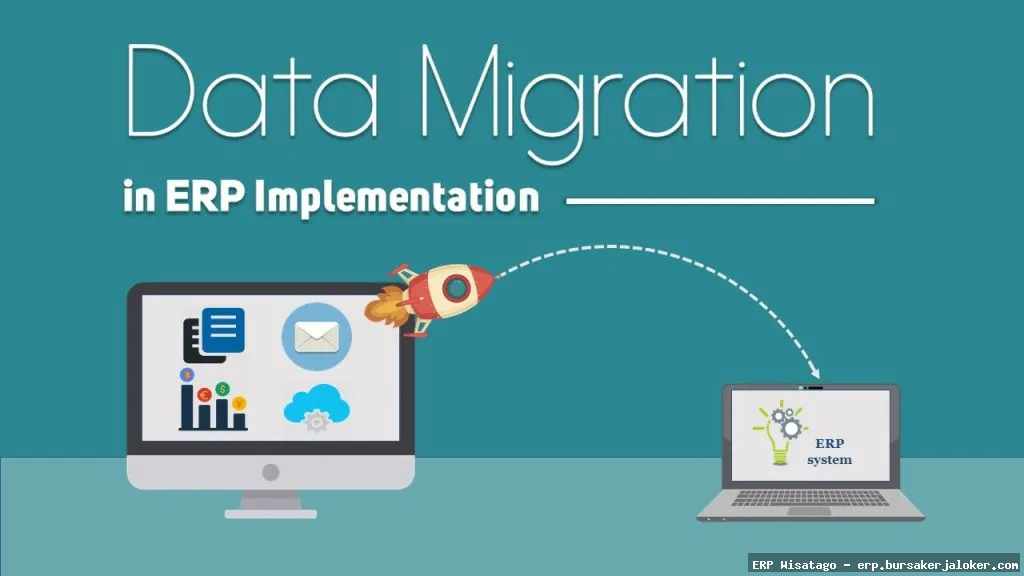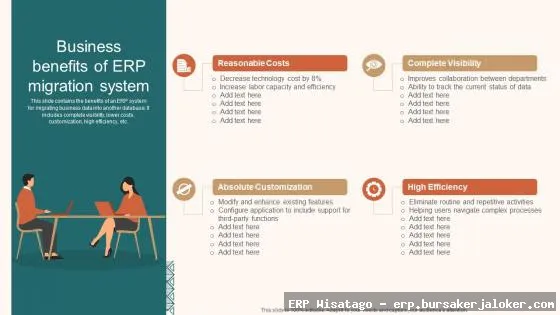Embarking on an ERP migration is a bit like moving houses. You’ve accumulated a lot of “stuff” – data, processes, customizations – over the years, and you need to carefully pack it up, transport it to a new location (the new ERP system), and unpack it in a way that makes sense. The process can be daunting, but with careful planning and the right ERP migration services, it can transform your business, streamlining operations, improving efficiency, and ultimately boosting your bottom line. It’s not just about moving data; it’s about modernizing your entire approach to how your business functions.
Having been involved in several ERP implementations and migrations, both successful and, shall we say, “learning experiences,” I’ve seen firsthand the impact – both positive and negative – that a well-executed (or poorly executed) migration can have. The key is understanding that it’s not just a technical project; it’s a business transformation project. It requires buy-in from all stakeholders, a clear understanding of your business processes, and a robust migration strategy. Ignoring any of these aspects can lead to costly delays, data loss, and frustrated employees.

This article aims to provide a comprehensive guide to ERP migration services, covering everything from the initial planning stages to the post-migration support. We’ll delve into the different types of migrations, the common challenges you might face, the key features to look for in a migration service provider, and how to ensure a smooth and successful transition. Whether you’re upgrading from an older version of your current ERP or switching to a completely new system, this guide will equip you with the knowledge you need to navigate the complexities of ERP migration and make informed decisions for your organization.
ERP Migration Services: Complete Guide, Features and Details
An ERP migration is the process of moving your existing Enterprise Resource Planning (ERP) system to a new platform. This could involve upgrading to a newer version of your current ERP, migrating to a different ERP vendor altogether, or even transitioning to a cloud-based ERP solution. The goal is to improve business processes, enhance efficiency, and leverage new technologies.
Why Migrate Your ERP?
There are several compelling reasons why a company might choose to migrate its ERP system:
- Outdated Technology: Older ERP systems may lack the features and capabilities needed to compete in today’s market.
- Lack of Support: Vendors often discontinue support for older versions, leaving you vulnerable to security risks and compatibility issues.
- Scalability Issues: Your current ERP may not be able to handle your company’s growth.
- Inefficient Processes: Outdated systems can hinder efficiency and productivity.
- Cloud Adoption: Migrating to a cloud-based ERP offers benefits such as reduced IT costs, improved accessibility, and enhanced security.
- Mergers and Acquisitions: Integrating ERP systems after a merger or acquisition is often necessary.
- Better Functionality: Newer ERP systems offer advanced features like AI, machine learning, and improved analytics.
Types of ERP Migration
Understanding the different types of ERP migrations is crucial for choosing the right approach for your business. Each type has its own set of challenges and considerations.
Upgrade Migration
This involves upgrading to a newer version of your existing ERP system. It’s generally the least disruptive type of migration, as it involves familiar processes and data structures. However, it’s still important to thoroughly test the upgraded system to ensure compatibility and functionality.
Data Migration
Data migration focuses on transferring data from the old ERP system to the new one. This is often the most time-consuming and complex part of the migration process. It requires careful planning, data cleansing, and validation to ensure data integrity.
Full ERP Implementation
This involves implementing a completely new ERP system, which includes data migration, process redesign, and user training. It’s the most comprehensive type of migration and requires significant investment in time and resources.
Cloud Migration
Cloud migration is the process of moving your ERP system to a cloud-based platform. This can involve migrating your existing on-premise ERP to the cloud or implementing a new cloud-native ERP solution. It offers benefits such as improved scalability, accessibility, and reduced IT costs.
Key Features of ERP Migration Services
Choosing the right ERP migration service provider is critical for a successful migration. Here are some key features to look for:
Assessment and Planning
A thorough assessment of your current ERP system, business processes, and data is essential for developing a comprehensive migration plan. The service provider should analyze your existing system to identify potential challenges and develop a detailed roadmap for the migration.
Data Migration Expertise
Data migration is a critical aspect of any ERP migration. The service provider should have expertise in data extraction, transformation, and loading (ETL) processes, as well as data cleansing and validation techniques.
Project Management
A dedicated project manager is essential for coordinating the migration process, managing timelines, and ensuring that the project stays on track. The project manager should have experience in managing ERP implementations and migrations.
Customization and Configuration
ERP systems are often customized to meet the specific needs of a business. The service provider should be able to handle customizations and configurations, ensuring that they are properly migrated to the new system.
Testing and Validation
Thorough testing and validation are essential to ensure that the new ERP system is functioning correctly and that data has been migrated accurately. The service provider should have a robust testing plan that covers all aspects of the system.
Training and Support
User training is crucial for ensuring that employees can effectively use the new ERP system. The service provider should offer comprehensive training programs and ongoing support to help users adapt to the new system.
Post-Migration Support
Post-migration support is essential for addressing any issues that may arise after the migration is complete. The service provider should offer ongoing support to ensure that the system continues to function correctly.
Common Challenges in ERP Migration
ERP migrations are complex projects that can present a number of challenges. Being aware of these challenges can help you prepare for them and mitigate their impact.
Data Quality Issues
Inaccurate or incomplete data can cause significant problems during the migration process. It’s important to cleanse and validate your data before migrating it to the new system.

Integration Issues
Integrating the new ERP system with other business systems can be challenging. It’s important to carefully plan the integration process and ensure that all systems are compatible.
Resistance to Change
Employees may resist the new ERP system if they are not properly trained or if they don’t understand the benefits. It’s important to communicate the benefits of the new system and provide adequate training. Effective IT management often involves a robust system, and RMM provides a centralized platform for monitoring and maintaining client infrastructure
.
Scope Creep
Scope creep can occur when new requirements are added to the project after the initial planning phase. It’s important to carefully manage the scope of the project and avoid adding unnecessary features.
Budget Overruns
ERP migrations can be expensive, and it’s easy to exceed the initial budget. It’s important to carefully plan the budget and monitor expenses throughout the project.
How to Choose the Right ERP Migration Service Provider
Selecting the right ERP migration service provider is a critical decision that can significantly impact the success of your migration. Here are some factors to consider:
Experience and Expertise
Look for a service provider with extensive experience in ERP implementations and migrations, particularly with the specific ERP system you are migrating to. Check their case studies and client testimonials.
Industry Knowledge
Choose a service provider with a deep understanding of your industry and its specific requirements. This will help them tailor the migration process to your unique needs.
Methodology and Approach
Understand the service provider’s methodology for ERP migration. They should have a well-defined process that includes assessment, planning, data migration, testing, training, and support.
Communication and Collaboration
Effective communication and collaboration are essential for a successful migration. Choose a service provider that is responsive, transparent, and willing to work closely with your team.
References and Reviews
Check references and reviews from previous clients to get an idea of the service provider’s performance and reliability. Ask about their experience with similar projects.
Cost and Value
Consider the cost of the migration services, but don’t let price be the only factor. Focus on the value that the service provider can bring to your organization, including improved efficiency, reduced costs, and enhanced business processes.
Ensuring a Smooth ERP Migration
A smooth ERP migration requires careful planning, execution, and communication. Here are some best practices to follow:
Define Clear Goals and Objectives
Clearly define the goals and objectives of the migration project. What do you hope to achieve by migrating to a new ERP system? This will help you measure the success of the project.
Develop a Detailed Migration Plan
Create a comprehensive migration plan that outlines all aspects of the project, including timelines, resources, and responsibilities. This plan should be regularly reviewed and updated as needed.
Involve Key Stakeholders
Involve key stakeholders from all departments in the migration process. This will help ensure that the new system meets the needs of all users.
Prioritize Data Quality
Invest time and resources in cleansing and validating your data before migrating it to the new system. This will help prevent data quality issues from disrupting the migration process.
Conduct Thorough Testing
Thoroughly test the new ERP system before going live to ensure that it is functioning correctly and that data has been migrated accurately. This should include unit testing, integration testing, and user acceptance testing.
Provide Adequate Training
Provide adequate training to all users on the new ERP system. This will help them adapt to the new system and use it effectively.

Monitor Performance and Provide Support
Monitor the performance of the new ERP system after going live and provide ongoing support to users. This will help ensure that the system continues to function correctly and that users are able to resolve any issues that arise.
In conclusion, ERP migration services are essential for businesses looking to modernize their operations and leverage the latest technologies. By understanding the different types of migrations, the key features of migration services, and the common challenges you might face, you can make informed decisions and ensure a smooth and successful transition to a new ERP system. Remember to choose a reputable service provider with experience in your industry and a proven track record of success. With careful planning and execution, your ERP migration can transform your business and drive significant improvements in efficiency and productivity.
Frequently Asked Questions (FAQ) about ERP migration services
What are the key benefits of migrating to a new ERP system, and how can ERP migration services help my business achieve these benefits?
Migrating to a new ERP system offers several key benefits, including improved efficiency, enhanced data visibility, streamlined processes, and better decision-making. ERP migration services play a crucial role in helping businesses realize these advantages by providing expertise in planning, data migration, implementation, and training. For example, a modern ERP can automate tasks previously done manually, freeing up resources for more strategic initiatives. The services ensure a smooth transition, minimizing disruption and maximizing the return on investment. By leveraging their experience, migration specialists can identify potential challenges early on and implement solutions to mitigate risks, ultimately enabling businesses to leverage the full potential of their new ERP system and achieve their desired business outcomes.
How much does ERP migration cost, and what factors typically influence the overall price of ERP migration services for a medium-sized business?
The cost of ERP migration for a medium-sized business varies significantly based on several factors. A typical migration can range from tens of thousands to hundreds of thousands of dollars. Key cost drivers include the complexity of the existing system, the volume of data to be migrated, the level of customization required in the new ERP, the chosen deployment method (cloud vs. on-premise), and the scope of training needed for employees. The cost of ERP migration services themselves also depends on the provider’s experience and the level of support offered. Customizations, data cleansing, and project management are significant cost factors. Thorough planning and a detailed assessment of your business requirements are crucial for accurate cost estimation and budget management throughout the migration process.
What are the common risks associated with ERP system migration, and how can professional ERP migration services help minimize disruption and ensure a successful transition?
ERP system migration carries inherent risks. Common pitfalls include data loss or corruption, cost overruns, project delays, business disruption, and user resistance. Insufficient planning, inadequate testing, and poor communication are often contributing factors. Professional ERP migration services mitigate these risks through a structured and methodical approach. They conduct thorough assessments of existing systems, develop detailed migration plans, implement robust data validation procedures, provide comprehensive user training, and offer ongoing support. Experienced consultants possess the knowledge and expertise to anticipate potential problems, implement proactive solutions, and ensure a smooth and efficient transition. Their expertise helps to minimize downtime, protect data integrity, and maximize user adoption, ultimately leading to a more successful ERP implementation.
